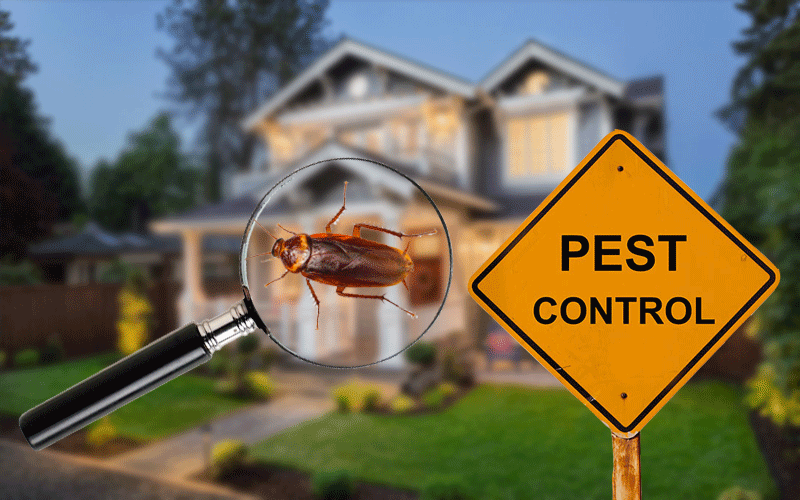Efficient A1 Bed Bug Treatment in Charlotte - Safe and Proven Techniques
Efficient A1 Bed Bug Treatment in Charlotte - Safe and Proven Techniques
Blog Article
Bed Insect Treatment Break Down: Contrasting Chemical Vs. Non-Chemical Solutions
In the world of parasite control, specifically when handling the consistent issue of bed insects, the choice in between chemical and non-chemical therapy services can be a pivotal one. Both methods supply distinct benefits and disadvantages, affecting variables such as performance, safety factors to consider, and total cost. By checking out the nuanced details of each method, a more clear understanding of which course to seek in resolving a bed pest invasion can be attained.
Effectiveness of Chemical Treatments
Chemical therapies for bed pest invasions have actually been commonly acknowledged for their potent and fast efficiency in eliminating these pests. When thinking about the effectiveness of chemical treatments, it is important to recognize that they can offer a fast and detailed service to a bed bug trouble. Professional pest control specialists usually rely on pesticides to target bed pests at various stages of their life process, including nymphs, eggs, and adults. These chemicals commonly work by interfering with the bed pests' anxious system, bring about paralysis and eventual death.
Additionally, chemical therapies have the benefit of providing residual impacts, indicating that they can remain to get rid of bed insects also after the initial application. This residual activity is specifically beneficial in combating any kind of potential re-infestations. Furthermore, the rapid action of chemical treatments can bring alleviation to people encountering serious bed insect infestations, allowing them to reclaim control of their space swiftly.
Security Issues With Chemical Solutions
One critical facet that calls for mindful factor to consider when utilizing chemical remedies for bed pest therapy is ensuring the safety of passengers and the setting. Direct exposure to specific chemicals utilized in bed bug treatments can lead to respiratory system problems, skin inflammation, or other adverse reactions, particularly in individuals with pre-existing conditions or sensitivities.
Moreover, the ecological influence of chemical solutions is an additional substantial consideration. Some pesticides utilized in bed insect treatments might be harmful to advantageous insects, wildlife, and ecosystems if they seep into the dirt or water systems. It is important to utilize chemical treatments deliberately, adhering to safety and security standards, and thinking about less poisonous options to reduce these dangers and make certain the effective and secure administration of bed bug infestations.
Benefits of Non-Chemical Strategies
Thinking about the potential security worries and ecological influence associated with chemical remedies for bed insect treatment, checking out non-chemical techniques offers an encouraging option with a number of distinct advantages. Non-chemical therapies are ecologically pleasant, as they do not add to air or water air pollution, making them a lasting selection for parasite control.
Additionally, non-chemical services can be effective in targeting bed bugs, including hard-to-reach areas where chemical treatments might not pass through. Approaches such as warm treatment, vacuuming, heavy steam cleaning, and mattress coverings give extensive elimination without using damaging chemicals. Moreover, non-chemical strategies can be less turbulent, requiring marginal preparation and permitting quicker reentry into treated locations. Generally, deciding for non-chemical bed pest therapy approaches not just focuses on safety and ecological security but additionally makes certain comprehensive and efficient bug control.
Limitations of Non-Chemical Treatments

In addition, non-chemical therapies typically require numerous applications to achieve effective elimination. This can be lengthy and may not constantly ensure complete elimination of all bed bugs and their eggs, specifically in hard-to-reach or surprise locations.
In addition, the success of non-chemical treatments greatly depends on proper execution and thoroughness, which can be testing for individuals without specialist proficiency. Poor application of non-chemical techniques might cause incomplete obliteration, causing persistent problems and the need for added treatments.
Consequently, while non-chemical treatments have their benefits, it is important to recognize these restrictions and consider them when identifying one of the most effective technique for managing bed insect infestations.
Price Comparison: Chemical Vs. Non-Chemical Options
Offered the limitations linked with non-chemical therapies, an important aspect to review in the context of bed bug management is the cost contrast in between chemical and non-chemical choices. In contrast, non-chemical therapies like heat therapy or heavy steam can be much more expensive, with prices ranging from $1,000 to $6,000 for an entire home. While the first expense of chemical treatments might seem reduced, several treatments may be called for to completely eradicate the infestation, possibly boosting the overall price.
Verdict

Taking into consideration the possible safety problems and ecological effect associated with chemical remedies for bed insect therapy, checking out non-chemical methods presents an encouraging option with several distinctive advantages.Provided the constraints connected with non-chemical treatments, a vital aspect A1 pest control services charlotte to review in the context of bed bug management is the price comparison in between chemical and non-chemical choices. In comparison, non-chemical treatments like heat therapy or heavy steam can be more costly, with expenses varying from $1,000 to $6,000 for an entire home. While the initial price of chemical treatments might seem reduced, multiple therapies might be needed to fully get rid of the invasion, potentially boosting the general price.In final thought, when comparing chemical and non-chemical bed insect treatment alternatives, it is vital to think about effectiveness, security, advantages, limitations, and expense.
Report this page